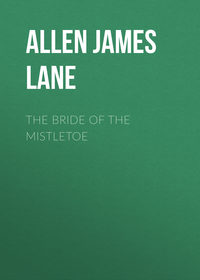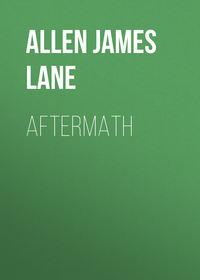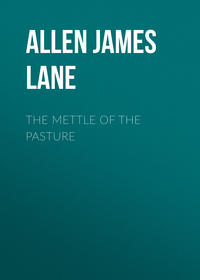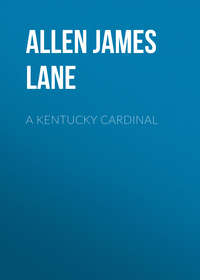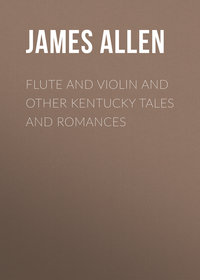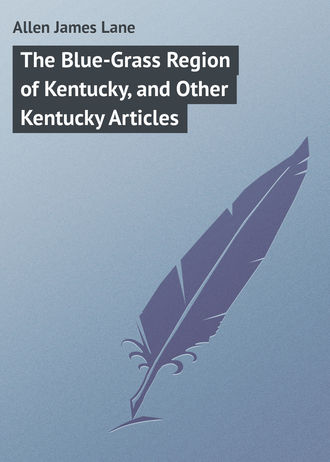 полная версия
полная версияThe Blue-Grass Region of Kentucky, and Other Kentucky Articles
The whole face of the country is taken up by a succession of farms. Each of these, except the very small ones, presents to the eye the variation of meadow, field, and woodland pasture, together with the homestead and the surrounding grounds of orchard, garden, and lawn. The entire landscape is thus caught in a vast net-work of fences. The Kentuckian retains his English ancestors' love of enclosures; but the uncertain tenure of estates beyond a single generation does not encourage him to make them the most durable. One does, indeed, notice here and there throughout the country stone-walls of blue limestone, that give an aspect of substantial repose and comfortable firmness to the scenery. But the farmer dreads their costliness, even though his own hill-sides furnish him an abundant quarry. He knows that unless the foundations are laid like those of a house, the thawing earth will unsettle them, that water, freezing as it trickles through the crevices, will force the stones out of their places, and that breaches will be made in them by boys on a hunt whenever and wherever it shall be necessary to get at a lurking or sorely pressed hare. It is ludicrously true that the most terrible destroyer of stone-walls in this country is the small boy hunting a hare, with an appetite for game that knows no geological impediment. Therefore one hears of fewer limestone fences of late years, some being torn down and superseded by plank fences or post-and-rail fences, or by the newer barbed-wire fence – an economic device that will probably become as popular in regions where stone and timber were never to be had as in others, like this, where timber has been ignorantly, wantonly sacrificed. It is a pleasure to know that one of the most expensive, and certainly the most hideous, fences ever in vogue here is falling into disuse. I mean the worm-fence – called worm because it wriggled over the landscape like a long brown caterpillar, the stakes being the bristles along its back, and because it now and then ate up a noble walnut-tree close by, or a kingly oak, or frightened, trembling ash – a worm that decided the destiny of forests. A pleasure it is, too, to come occasionally upon an Osage orange hedge-row, which is a green eternal fence. But you will not find many of these. It is generally too much to ask of an American, even though he be a Kentuckian, to wait for a hedge to grow and make him a fence. When he takes a notion to have a fence, he wants it put up before Saturday night.
If the Kentuckian, like the Englishman, is fond of fencing himself off, like the Frenchman, he loves long, straight roads. You will not find elsewhere in America such highways as the Kentuckian has constructed over his country – broad, smooth, level, white, glistening turnpikes of macadamized limestone. It is a luxury to drive, and also an expense, as one will discover before one has passed through many toll-gates. One could travel more cheaply on the finest railway on the continent. What Richard Grant White thought it worth while to record as a rare and interesting sight – a man on an English highway breaking stones – is no uncommon sight here. All limestone for these hundreds of miles of road, having been quarried here, there, anywhere, and carted and strewn along the road-side, is broken by a hammer in the hand. By the highway the workman sits – usually an Irishman – pecking away at a long rugged pile as though he were good to live for a thousand years. Somehow, in patience, he always gets to the other end of his hard row.
One cannot sojourn long without coming to conceive an interest in this limestone, and loving to meet its rich warm hues on the landscape. It has made a deal of history: limestone blue-grass, limestone water, limestone roads, limestone fences, limestone bridges and arches, limestone engineering architecture, limestone water-mills, limestone spring-houses and homesteads – limestone Kentuckians! Outside of Scripture no people was ever so founded on a rock. It might be well to note, likewise, that the soil of this region is what scientists call sedentary – called so because it sits quietly on the rocks, not because the people sit quietly on it.
Undoubtedly the most picturesque monuments in the blue-grass country are old stone water-mills and old stone homesteads – landmarks each for separate trains of ideas that run to poetry and to history. The latter, built by pioneers or descendants of pioneers, nearly a hundred years ago, stand gray with years, but good for nameless years to come; great low chimneys, deep little windows, thick walls, mighty fireplaces; situated usually with keen discretion on an elevation near a spring, just as a Saxon forefather would have placed them centuries ago. Haply one will see the water of this spring issuing still from a recess in a hill-side, with an overhanging ledge of rock – the entrance to this cavern being walled across and closed with a gate, thus making, according to ancient fashion, a simple natural spring-house and dairy.
Something like a feeling of exasperation is apt to come over one in turning to the typical modern houses. Nowhere, certainly, in rural America, are there, within the same area, more substantial, comfortable homesteads. They are nothing if not spacious and healthful, frame or brick, two stories, shingle roofs. But they lack characteristic physiognomy; they have no harmony with the landscape, nor with each other, nor often with themselves. They are not beautiful when new, and can never be beautiful when old; for the beauty of newness and the beauty of oldness alike depend on beauty of form and color, which here is lacking. One longs for the sight of a rural Gothic cottage, which would harmonize so well with the order of the scenery, or for a light, elegant villa that should overlook these light and elegant undulations of a beautiful and varied landscape. It must be understood that there are notable exceptions to these statements even in the outlying districts of the blue-grass country, and that they do not apply to the environs of the towns, nor to the towns themselves.
Nowhere does one see masses of merely beautiful things in the country. The slumbering art of interior decoration is usually spent upon the parlor. The grounds around the houses are not kept in the best order. The typical rural Kentucky housewife does not seem to have any compelling, controlling sense of the beautiful. She invariably concedes something to beauty, but not enough. You will find a show of flowers at the poorest houses, though but geranium slips in miscellaneous tins and pottery. But you do not generally see around more prosperous homes any such parterres or beds as there is money to spend on, and time to tend, and grounds to justify.
A like spirit is shown by the ordinary blue-grass farmer. His management strikes you as not the pink of tidiness, not the model of systematic thrift. Exceptions exist – many exceptions – but the rule holds good. One cannot travel here in summer or autumn without observing that weeds flourish where they harm and create ugliness; fences go unrepaired; gates may be found swinging on one hinge. He misuses his long-cultivated fields; he cuts down his scant, precious trees. His energy is not tireless, his watchfulness not sleepless. Why should they be? Human life here is not massed and swarming. The occupation of the soil is not close and niggard. The landscape is not even compact, much less crowded. There is room for more, plenty for more to eat. No man here, like the ancient Roman prætor, ever decided how often one might, without trespass, gather the acorns that fall from his neighbors' trees. No woman ever went through a blue-grass harvest field gleaning. Ruth's vocation is unknown. By nature the Kentuckian is no rigid economist. By birth, education, tradition, and inherited tendencies he is not a country clout, but a rural gentleman. His ideal of life is neither vast wealth nor personal distinction, but solid comfort in material conditions, and the material conditions are easy: fertility of soil, annual excess of production over consumption, comparative thinness of population. So he does not brace himself for the tense struggle of life as it goes on in centres of fierce territorial shoulder-pushing. He can afford to indulge his slackness of endeavor. He is neither an alert aggressive agriculturist, nor a landscape gardener, nor a purveyor of commodities to the green-grocer. If the world wants vegetables, let it raise them. He declines to work himself to death for other people, though they pay him for it. His wife is a lady, not a domestic laborer; and it is her privilege, in household affairs, placidly to surround herself with an abundance which the lifelong female economists of the North would regard with conscientious indignation.
In truth, there is much evidence to show that this park-like country, intersected by many beautiful railroads, turnpikes, and shaded picturesque lanes, will become less and less an agricultural district, more and more a region of unequalled pasturage, and hence more park-like still. One great interest abides here, of course – the manufacture of Bourbon whiskey. Another interest has only within the last few years been developed – the cultivation of tobacco, for which it was formerly thought that the blue-grass soils were not adapted. But as years go by, the stock interests invite more capital, demand more attention, give more pleasure – in a word, strike the full chord of modern interest by furnishing an unparalleled means of speculative profit.
Forty years ago the most distinguished citizens of the State were engaged in writing essays and prize papers on scientific agriculture. A regular trotting track was not to be found in the whole country. Nothing was thought of the breeding and training of horses with reference to development of greater speed. Pacing horses were fashionable; and two great rivals in this gait having been brought together for a trial of speed, in lieu of a track, paced a mighty race over a river-bottom flat. We have changed all that. The gentlemen no longer write their essays. Beef won the spurs of knighthood. In Kentucky the horse has already been styled the first citizen. The great agricultural fairs of the State have modified their exhibits with reference to him alone, and fifteen or twenty thousand people give afternoon after afternoon to the contemplation of his beauty and his speed. His one rival is the thoroughbred, who goes on running faster and faster. One of the brief code of nine laws for the government of the young Kentucky commonwealth that were passed in the first legislative assembly ever held west of the Alleghanies dealt with the preservation of the breed of horses. Nothing was said of education. The Kentuckian loves the memory of Thomas Jefferson, not forgetting that he once ran racehorses. These great interests, not overlooking the cattle interest, the manufacture of whiskey, and the raising of tobacco, will no doubt constitute the future determining factors in the history of this country. It should not be forgotten, however, that the Northern and Eastern palate becomes kindly disposed at the bare mention of the many thousands of turkeys that annually fatten on these plains.
V"In Kentucky," writes Professor Shaler, in his recent history, "we shall find nearly pure English blood. It is, moreover, the largest body of pure English folk that has, speaking generally, been separated from the mother country for two hundred years." They, the blue-grass Kentuckians, are the descendants of those hardy, high-spirited, picked Englishmen, largely of the squire and yeoman class, whose absorbing passion was not religious disputation, nor the intellectual purpose of founding a State, but the ownership of land and the pursuits and pleasures of rural life, close to the rich soil, and full of its strength and sunlight. They have to this day, in a degree perhaps equalled by no others living, the race qualities of their English ancestry and the tastes and habitudes of their forefathers. If one knows the Saxon nature, and has been a close student of Kentucky life and character, stripped bare of the accidental circumstances of local environment, he may amuse himself with laying the two side by side and comparing the points of essential likeness. It is a question whether the Kentuckian is not more like his English ancestor than his New England contemporary. This is an old country, as things go in the West. The rock formation is very old; the soil is old; the race qualities here are old. In the Sagas, in the Edda, a man must be over-brave. "Let all who are not cowards follow me!" cried McGary, putting an end to prudent counsel on the eve of the battle of the Blue Licks. The Kentuckian winced under the implication then, and has done it in a thousand instances since. Over-bravery! The idea runs through the pages of Kentucky history, drawing them back into the centuries of his race. It is this quality of temper and conception of manhood that has operated to build up in the mind of the world the figure of the typical Kentuckian. Hawthorne conversed with an old man in England who told him that the Kentuckians flayed Tecumseh where he fell, and converted his skin into razor-strops. Collins, the Kentucky Froissart, speaking of Kentucky pioneers, relates of the father of one of them that he knocked Washington down in a quarrel, and received an apology from the Father of his Country on the following day. I have mentioned this typical Hotspur figure because I knew it would come foremost into the mind of the reader whenever one began to speak with candor of Kentucky life and character. It was never a true type: satire bit always into burlesque along lines of coarseness and exaggeration. Much less is it true now, except in so far as it describes a kind of human being found the world over.
But I was saying that old race qualities are apparent here, because this is a people of English blood with hereditary agricultural tastes, and because it has remained to this day largely uncommingled with foreign strains. Here, for instance, is the old race conservatism that expends itself reverentially on established ways and familiar customs. The building of the first great turnpike in this country was opposed on the ground that it would shut up way-side taverns, throw wagons and teams out of employment, and destroy the market for chickens and oats. Prior to that, immigration was discouraged because it would make the already high prices of necessary articles so exorbitant that the permanent prosperity of the State would receive a fatal check. True, however, this opposition was not without a certain philosophy; for in those days people went to some distant lick for their salt, bought it warm from the kettle at seven or eight cents a pound, and packed it home on horseback, so that a fourth dropped away in bitter water. Coming back to the present, the huge yellowish-red stage-coach rolls to-day over the marbled roads of the blue-grass country. Families may be found living exactly where their pioneer ancestors effected a heroic settlement – a landed aristocracy, if there be such in America. Family names come down from generation to generation, just as a glance at the British peerage will show that they were long ago being transmitted in kindred families over the sea. One great honored name will do nearly as much in Kentucky as in England to keep a family in peculiar respect, after the reason for it has ceased. Here is that old invincible race ideal of personal liberty, and that old, unreckoning, truculent, animal rage at whatever infringes on it. The Kentuckians were among the very earliest to grant manhood suffrage. Nowhere in this country are the rights of property more inviolable, the violations of these more surely punished: neither counsel nor judge nor any power whatsoever can acquit a man who has taken fourpence of his neighbor's goods. Here is the old land-loving, land-holding, home-staying, home-defending disposition. This is not the lunching, tourist race that, to Mr. Ruskin's horror, leaves its crumbs and chicken-bones on the glaciers. The simple rural key-note of life is still the sweetest. Now, after the lapse of more than a century, the most populous town contains less than twenty thousand white souls. Along with the love of land has gone comparative content with the annual increase of flock and field. No man among them has ever got immense wealth. Here is the old sense of personal privacy and reserve which has for centuries intrenched the Englishman in the heart of his estate, and forced him to regard with inexpugnable discomfort his neighbor's boundaries. This would have been a densely peopled region, the farms would have been minutely subdivided, had sons asked and received permission to settle on parts of the ancestral estate. This filling in and too close personal contact would have satisfied neither father nor child, so that the one has generally kept his acres intact, and the other, impelled by the same land-hunger that brought his pioneer forefather hither, has gone hence into the younger West, where lie broader tracts and vaster spaces. Here is the old idea, somewhat current still in England, that the highest mark of the gentleman is not cultivation of the mind, not intellect, not knowledge, but elegant living. Here is the old hereditary devotion to the idea of the State. Write the biographies of the Kentuckians who have been engaged in national or in local politics, and you have largely the history of the State of Kentucky. Write the lives of all its scientists, artists, musicians, actors, poets, novelists, and you find many weary mile-stones between the chapters.
Enter the blue-grass region from what point you choose – and you may do this, so well traversed is it by railways – and you become sensitive to its influence. If you come from the North or the East, you say: "This is not modern America. Here is something local and unique. For one thing, nothing goes fast here." By-and-by you see a blue-grass race-horse, and note an exception. But you do not also except the rider or the driver. The speed is not his. He is a mere bunch of mistletoe to the horse. Detach him, and he is not worth timing. Human speed for the most part lies fallow. Every man starts for the goal of life at his own natural gait, and if he sees that it is too far off for him to reach it in a lifetime, he does not run the faster, but has the goal moved nearer him. The Kentuckians are not provincial. As Thoreau said, no people can long remain provincial who have a propensity for politics, whittling, and rapid travelling. They are not inaccessible to modern ideas, but the shock of modern ideas has not electrified them. They have walled themselves around with old race instincts and habitudes, and when the stream of tendency rushes against this wall, it recoils upon itself instead of sweeping away the barrier.
The typical Kentuckian regards himself an American of the Americans, and thinks as little of being like the English as he would of imitating the Jutes. In nothing is he more like his transatlantic ancestry than in strong self-content. He sits on his farm as though it were the pole of the heavens – a manly man with a heart in him. Usually of the blond type, robust, well formed, with clear, fair complexion, that grows ruddier with age and stomachic development, full neck, and an open, kind, untroubled countenance. He is frank, but not familiar; talkative, but not garrulous; full of the genial humor of local hits and allusions, but without a subtle nimbleness of wit; indulgent towards purely masculine vices, but intolerant of petty crimes; no reader of books nor master in religious debate, faith coming to him as naturally as his appetite, and growing with what it feeds upon; loving roast pig, but not caring particularly for Lamb's eulogy; loving his grass like a Greek, not because it is beautiful, but because it is fresh and green; a peaceful man with strong passions, and so to be heartily loved and respected or heartily hated and respected, but never despised or trifled with. An occasional barbecue in the woods, where the saddles of South Down mutton are roasted on spits over the coals of the mighty trench, and the steaming kettles of burgoo lend their savor to the nose of the hungry political orator, so that he becomes all the more impetuous in his invectives; the great agricultural fairs; the race-courses; the monthly county court day, when he meets his neighbors on the public square of the nearest town; the quiet Sunday mornings, when he meets them again for rather more clandestine talks at the front door of the neighborhood church – these and his own fireside are his characteristic and ample pleasures. You will never be under his roof without being touched by the mellowest of all the virtues of his race – simple, unsparing human kindness and hospitality.
The women of Kentucky have long had reputation for beauty. An average type is a refinement on the English blonde – greater delicacy of form, feature, and color. A beautiful Kentucky woman is apt to be exceedingly beautiful. Her voice is low and soft; her hands and feet delicately formed; her skin pure and beautiful in tint and shading; her eyes blue or brown, and hair nut brown or golden brown; to all which is added a certain unapproachable refinement. It must not for a moment be supposed, however, that there are not many genuinely ugly women in Kentucky.
UNCLE TOM AT HOME
IOn the outskirts of the towns of central Kentucky, a stranger, searching for the picturesque in architecture and in life, would find his attention arrested by certain masses of low frame and brick structures, and by the multitudes of strange human beings that inhabit them. A single town may have on its edges several of these settlements, which are themselves called "towns," and bear separate names either descriptive of some topographical peculiarity or taken from the original owners of the lots. It is in these that a great part of the negro population of Kentucky has packed itself since the war. Here live the slaves of the past with their descendants; old family servants from the once populous country-places; old wagon-drivers from the deep-rutted lanes; old wood-choppers from the slaughtered blue-grass forests; old harvesters and ploughmen from the long since abandoned fields; old cooks from the savory, wasteful kitchens; old nurses from the softly rocked and softly sung-to cradles. Here, too, are the homes of the younger generation, of the laundresses and the barbers, teachers and ministers of the gospel, coachmen and porters, restaurant-keepers and vagabonds, hands from the hemp factories, and workmen on the outlying farms.
You step easily from the verge of the white population to the confines of the black. But it is a great distance – like the crossing of a vast continent between the habitats of alien races. The air seems all at once to tan the cheek. Out of the cold, blue recesses of the midsummer sky the sun burns with a fierceness of heat that warps the shingles of the pointed roofs and flares with blinding brilliancy against some whitewashed wall. Perhaps in all the street no little cooling stretch of shade. The unpaved sidewalks and the roadway between are but indistinguishable parts of a common thoroughfare, along which every upspringing green thing is quickly trodden to death beneath the ubiquitous play and passing of many feet. Here and there, from some shielded nook or other coign of vantage, a single plumy branch of dog-fennel may be seen spreading its small firmament of white and golden stars close to the ground; or between its pale green stalks the faint lavender of the nightshade will take the eye as the sole emblem of the flowering world.
A negro town! Looking out the doors and windows of the cabins, lounging in the door-ways, leaning over the low frame fences, gathering into quickly forming, quickly dissolving groups in the dusty streets, they swarm. They are here from milk-white through all deepening shades to glossy blackness; octoroons, quadroons, mulattoes – some with large liquid black eyes, refined features, delicate forms; working, gossiping, higgling over prices around a vegetable cart, discussing last night's church festival, to-day's funeral, or next week's railway excursion, sleeping, planning how to get work and how to escape it. From some unseen old figure in flamboyant turban, bending over the wash-tub in the rear of a cabin, comes a crooned song of indescribable pathos; behind a half-closed front shutter, a Moorish-hued amosoro in gay linen thrums his banjo in a measure of ecstatic gayety preluding the more passionate melodies of the coming night. Here a fight; there the sound of the fiddle and the rhythmic patting of hands. Tatters and silks flaunt themselves side by side. Dirt and cleanliness lie down together. Indolence goes hand in hand with thrift. Superstition dogs the slow footsteps of reason. Passion and self-control eye each other across the narrow way. If there is anywhere resolute virtue, round it is a weltered muck of low and sensual desire. One sees the surviving types of old negro life here crowded together with and contrasted with the new phases of "colored" life – sees the transitional stage of a race, part of whom were born slaves and are now freemen, part of whom have been born freemen but remain so much like slaves.





